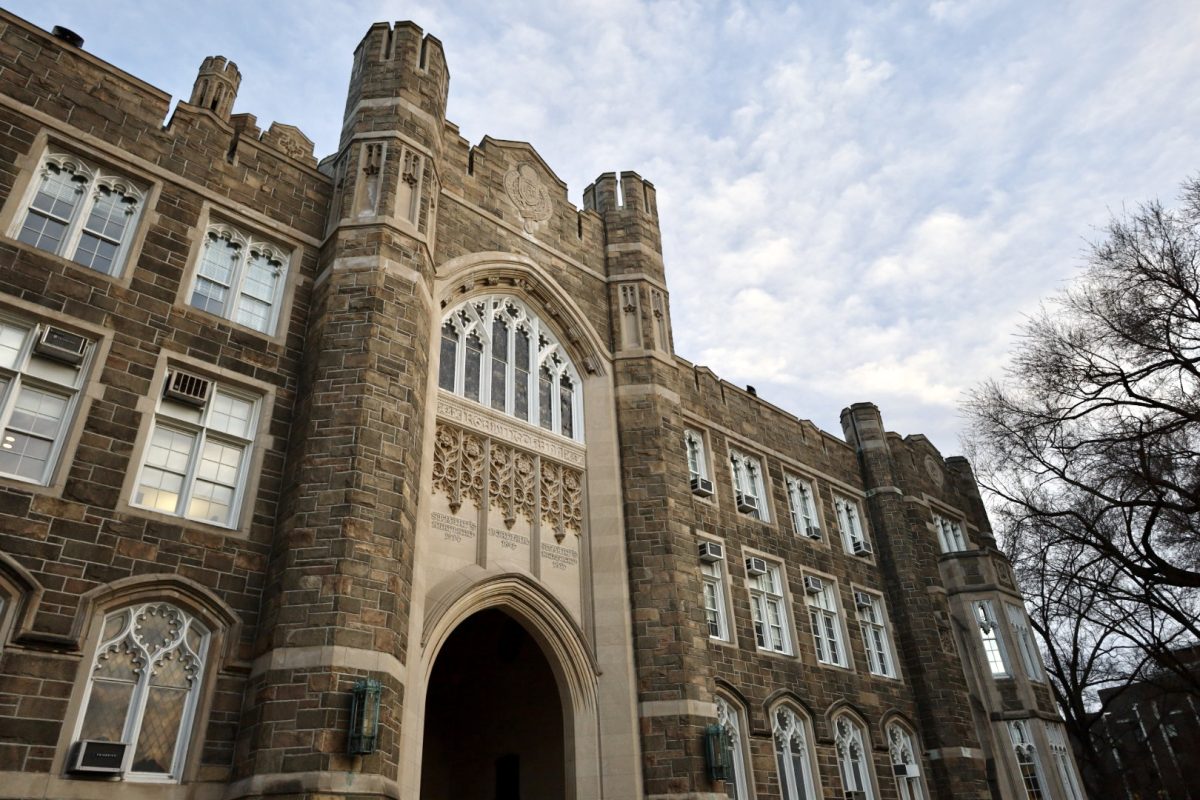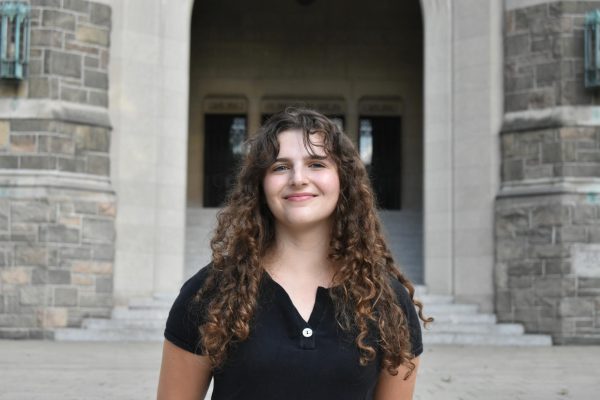Jesse Eisenberg’s sophomore directorial film, “A Real Pain,” premiered this October at the 62nd New York Film Festival , ahead of its general release on Nov. 1. The Searchlight picture surrounds a pair of 30-something cousins David and Benji, played by Eisenberg and “Succession” star Kieran Culkin, who take a pilgrimage to their recently deceased grandmother’s Polish hometown on an organized tour with a gaggle of “geriatric” travelers, as Benji calls them to their face. The cousins could not be more different, which is the perfect reflection of the off-kilter, dual tones of the film.
David sells digital ads for a living, and comes home to his wife and son, while Benji is out of work and lives with his mother in Binghamton, New York. Benji is concerned about his place as a Jewish man in the arc of history, and David is content with distancing himself emotionally whilst learning about the past. Eisenberg’s performance as David is the grounded, but judgemental foil to the perceptive irrationality Culkin is able to exhibit. The director has perfected the pain of simultaneous worry,love, frustration and care for another. Culkin masters the inherent poise that, as an audience member, is understandable why others love him despite his distracted proclivities.
“A Real Pain” is comfortable in its existence as a vehicle for Eisenberg’s pessimism and Culkin’s star power. After the screening, there was a Q&A with Culkin, Jennifer Grey (who played a recent divorcee on the Polish tour), producer Ali Hertling and Eisenberg (who called in from Budapest).
Eisenberg discussed how he created the story around the tonal balance, saying “I think I have a depressive worldview, maybe. Probably.” But the film never feels overbearingly sad; it’s clear Eisenberg wanted to maintain the comedy along with the realism. He shared that his idea for the story stemmed from an ad he received on his phone for “Auschwitz tours (with lunch!),” which he thought was so preposterous he needed to dive into the type of person who would attend this listing. However, he keeps the simultaneous quiet care for his characters present throughout the film, in front of the culturally-filled, pensive backdrop of Poland, while looking back at the history of the Holocaust. At one point, Grey even said of Eisenberg, “I felt brought back to life from working with you. It felt very profound to me.”
With every answer from Eisenberg, it was clear, from the humor that comes so naturally to him, that it was far from difficult to integrate comedy into such a dense film (both in the smaller relationship it shows and its wider views about the world). The audience loved hearing from him, even through a ginormous Zoom reflection, and he spent most of the Q&A session praising Culkin, to the Emmy winner’s horror. But the performance is well deserving of the praise; it’s not a subtle performance. Culkin takes up the space Benji would need to, in order to have as great of an effect on the story, side characters and audience as he does. He’s a wide open, beating heart, and impossible to look away from.
There are a few scenes that were clearly meant to be light-hearted set pieces that overall didn’t work for me, including scenes where Benji forces the group to take a photo with a monument and one where the cousins trek through a train. Still, I appreciated the attempt for a little action as it was well-intended, as is the story as a whole. Mostly, though, you should come for the soon-to-be award-winning performances and stay for the perfect balance of comedy and drama.









































































































































































































